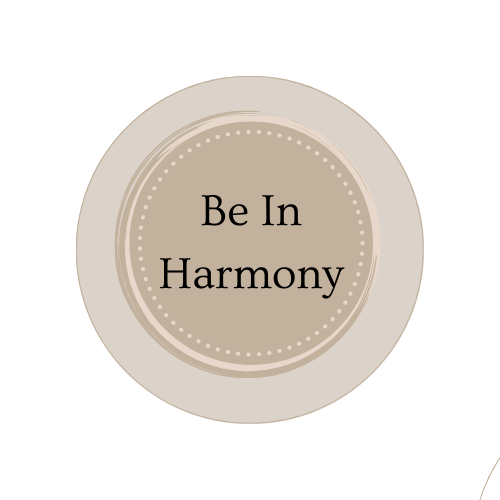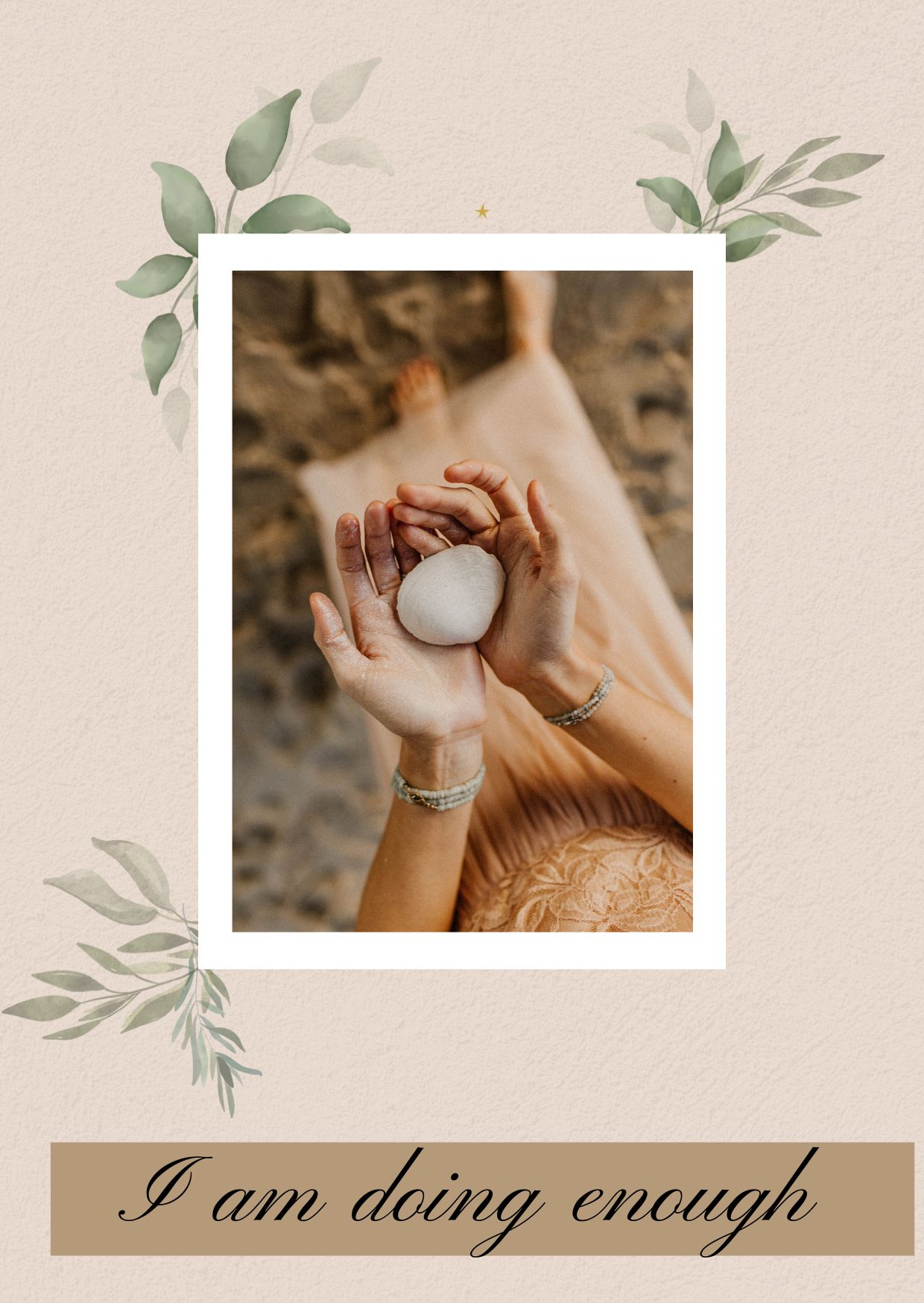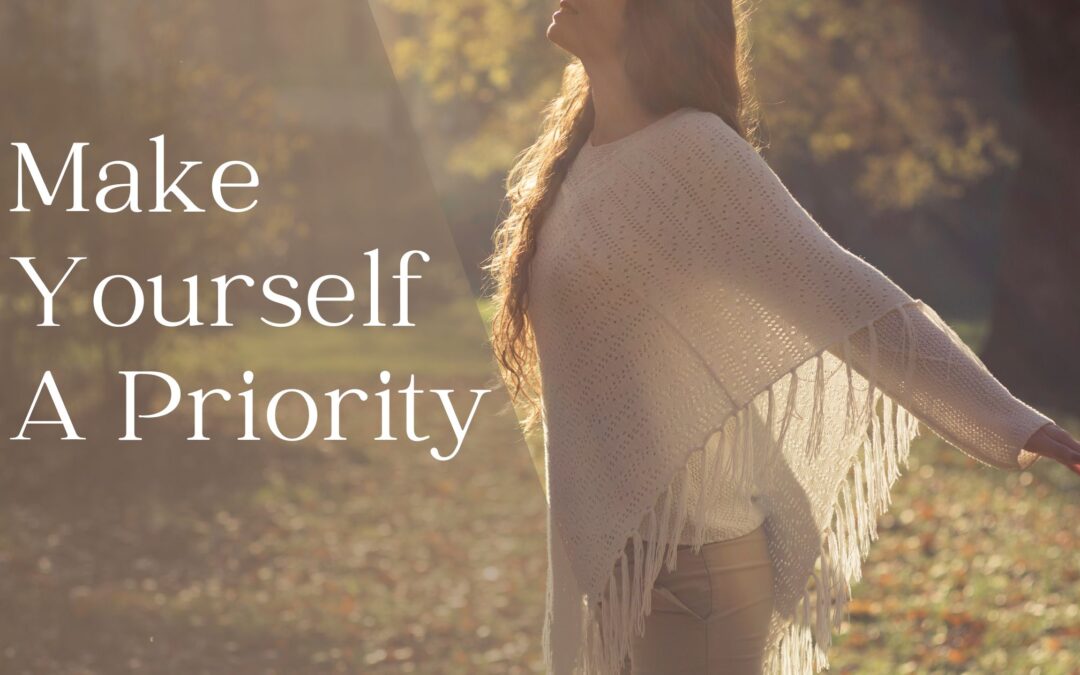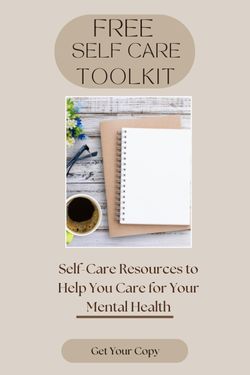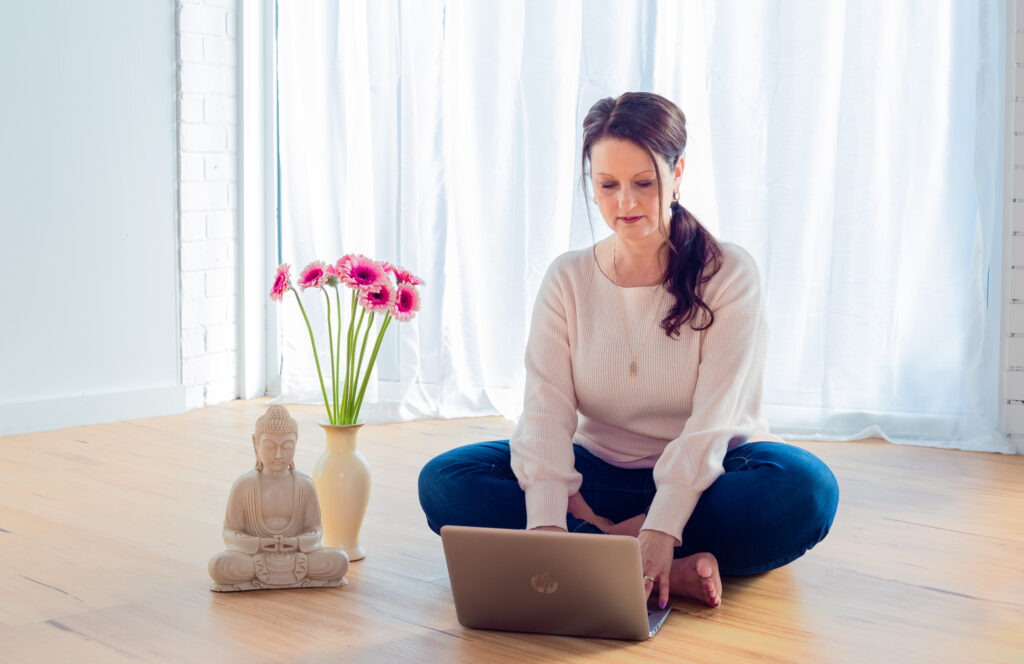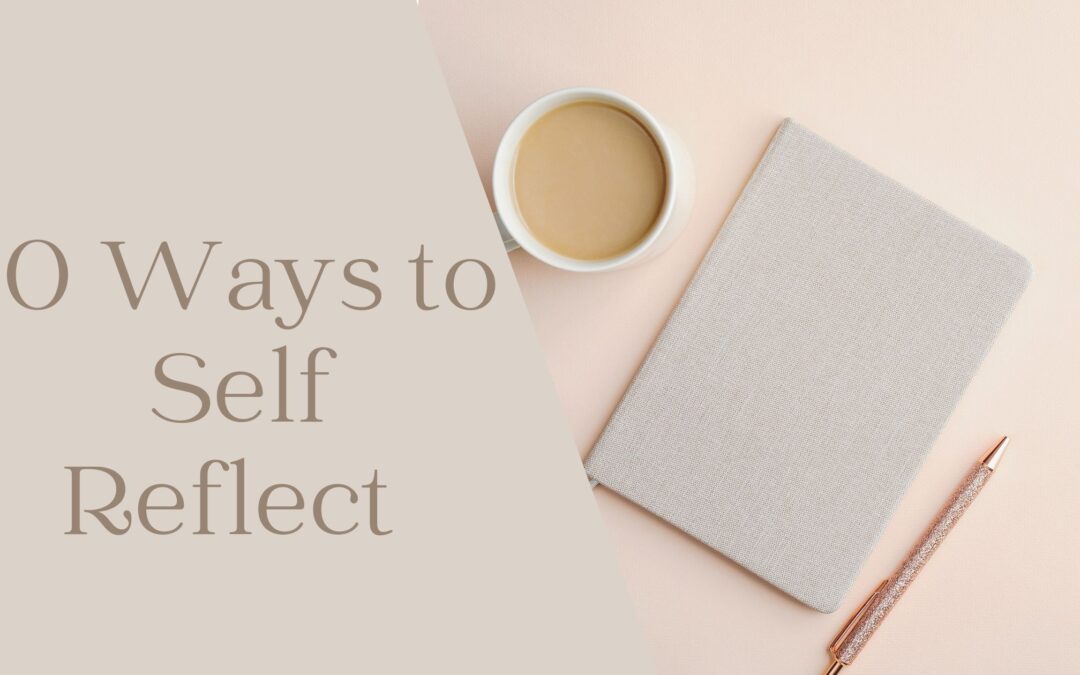
10 Ways to Practices Self Reflection
Self-reflection is an amazing tool for creating the best version of yourself.
It can also be confronting exercise to undertake.
Let’s be honest it’s challenging to go deep within and look with yourselves.
It to easier to distract yourselves and fill your days with, a long to-do list in an effort to avoid reflecting on yourself
Your attention is pulled in so many different directions by the outside world that self-reflection is not often at the top of your to-do list.
The reality is unless you make space and time to self-reflect it is not going to happen.
It feels easier and more comfortable to turn your attention outwards instead of inwards. Go within and looking deeply at yourselves is something most of us avoid.
The mind often distracts you and tries to create more things to do.
Are you ready to go on your own journey of self-reflection?
Self-reflecting is not necessarily an easy journey to face. However, I will promise you this. It is one of the most valuable journeys; you will undertake for your personal growth.
“The Journey into self-love as self-acceptance must begin with self-examination… until you take the journey of self-reflection it is almost impossible to grow or learn in life” (Iyanla Vanzant)

Self-reflection is the process of taking the time to go within and analyse your inner self on a deeper level.
Through these analyses, you are able to gain insight into who you are, what you value, and your thoughts, actions, desires and motivation.
Within the self-reflective process, you come to understand your true self. By looking inward, you take off the mask you wear for the outside world. It allows you to connect with yourself and grow from this self-reflection experience.
Self-reflection is a powerful process and it will have a positive effect on your life.
Ten Practices for Self-Reflection
1. Journaling for self-reflection
Journaling is a beautiful way to deep self-reflection. It can be as simple as writing a daily self-reflection sentence about anything you want to reflect on. If you feel you want to go a little deeper. Then write a long journal entry about something good or bad that you experienced. Explore and reflect on the event, your thoughts feelings or emotions that are coming up for you. Try not to censor what you write, allow the words to flow. Then read over your journal entry. Reflect upon what you have written, you will be amazed by the insight you get from your writing.
There is no wrong or right way to journal. do what feels right for you and will help you to reflect inwards.
2. Question Yourself
Asking yourself the tough questions is a vital part of the self-reflective These questions can feel uncomfortable however, by asking these questions and answering honestly, you are able to hold a reflective mirror up to your lives and yourself.
Reflective questions:
Who do I want to be?
What do I stand for?
How I’m behaving?
What are my values?
What are my desires?
Is my life heading in the direction I want?
What motivates me?
What makes me happy?
These are big questions, but they allow you to go deep and truly reflect on who you are and what drives your behaviour.
3. Allow time for Stillness
Do you make time in your day for stillness?
As it only from being still and silent. You are able to go within and deeply connect with yourselves and reflect. With stillness, you get to know the real you. These not hiding or distracting yourself. You take a deep inward journey and slowly peel away the lays. There is nowhere to hide in stillness. You are complete with yourself. Disconnected from the external world that disconnects your true self.
Reflect:
How can you create time for stillness in your day? It can be as simple as a 5-minute mindfulness practice e being still and present in the moment.
Or a beautiful meditation practice. That brings you into stillness.
(check out the resources below for free meditations)
Creating time to be still it allows the space to do the deep reflective work you need to connect, grow and learn more about yourself.
4. Get in touch with your feelings
Reflect on your feelings and get in touch with how you feel. This is deep work. For many of us, it is easier to push our feeling aside or tell ourselves that what we are feeling is not valid. Do not dismiss how you feel. You have the right to feel the way you feel and not to push your feelings aside.
By reflecting on feelings and understanding them. It gives insight into your emotional and mental well-being.
Try this practice:
Take a breath
Pause
Reflect:
Go within and ask how do I feel.
Why am I having these feelings?
How are these feelings affecting me?
If you need support with exploring your feeling, more. Enlist the help of a professional counsellor or coach. (work with me)
5. Reflect on the story
Reflect on the story you are telling yourself. The inner critic can be lode and mean.
By reflecting on the story and the words, you say to yourselves. It helps to develop inner awareness. Generally, the default story we tell ourselves is the I’m not good enough story.
Reflect:
Listen to what it is you say to yourself. Do you need to release the old story or harsh words you speak to yourself?
Stepping back and observing the story gives you the power to defuse the thought pattern. Develop a regular reflective practice of the stories and words you use. It will empower you to recognise when the story is no longer serving you and to replace it with a new and improved story.
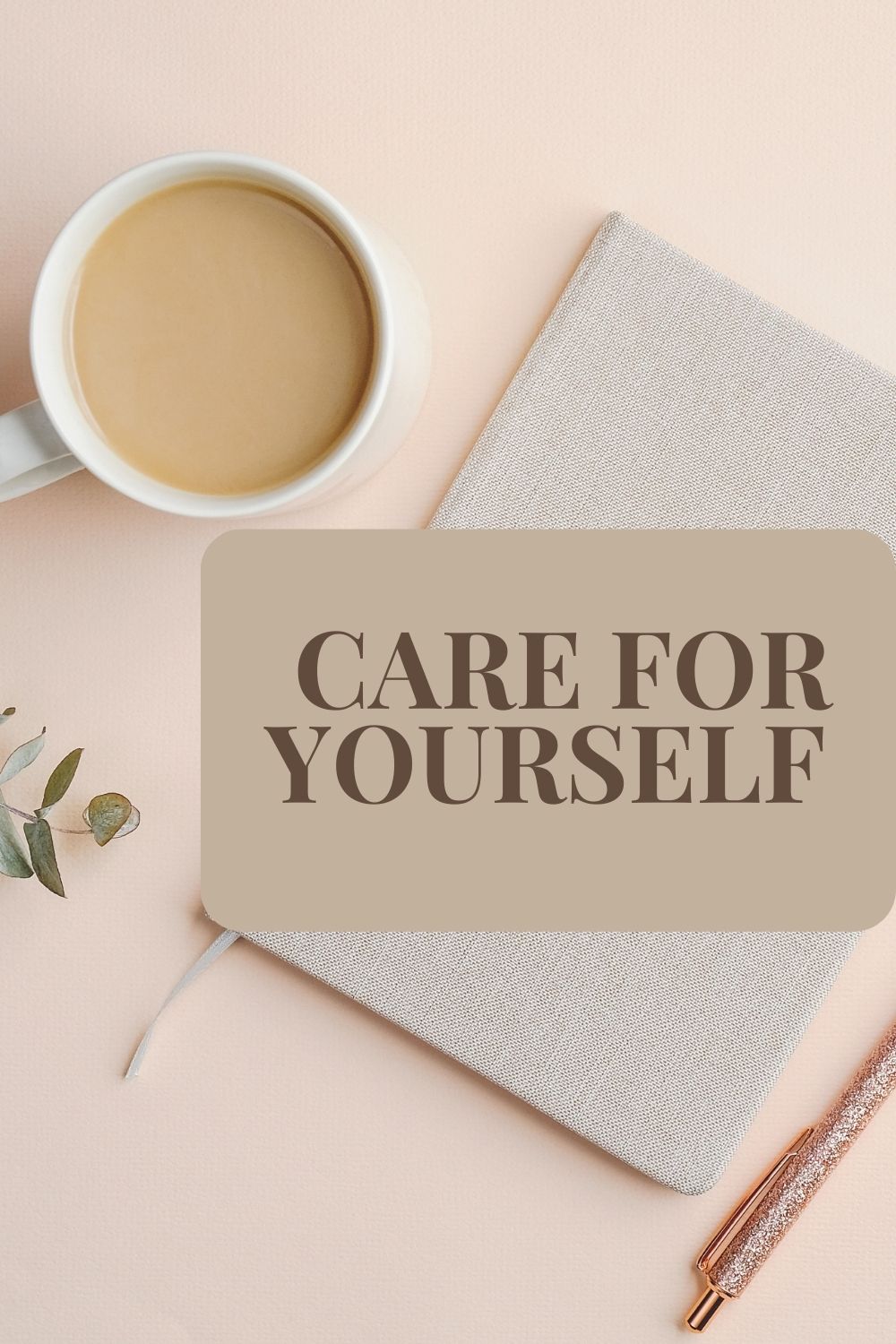
6. Care of Self
One of the best ways to care for yourself is to reflect on what your needs are and how you care for yourself
Reflect:
How do I currently care for myself?
Do I spend more time caring for others than I do for myself?
What do I need to feel cared for?
What do I need to feel my best?
Then from the answer to these questions create a care plan for yourself. A great way to put in place, your plan is to pick a time and day that you are committed to implementing care for yourself. I like to have time on Sundays. I call it my self-care Sunday!
7. Self-compassion and kindness.
Did you know that being kind to yourself has a great positive effect on your life? Think about it the way you treat yourself influences every aspect of your well-being. We are with ourselves 24/7 and we can say some unkind things to yourselves. Would you say to a friend the thing you say to yourself? The words we say to yourselves have meaning.
Reflect: Do I treat myself with kindness and compassion?
Do I need to be kinder to myself?
Try this: saying something that creates a sense of kindness.
Phrases such as “I am kind to myself” and “I am gentle with myself “. I treat myself with kindness.
Place your hand on your heart and say I hold myself with kindness and compassion. Experiment and reflect on what feels good and brings up a feeling of self-compassion.
8. Personal Growth
Do you ever stop and look at how much you have grown? The lessons you have learned along your journey. By self-reflecting on your personal growth, it gives you a picture of where have you been and where are you going.
I am sure along the way there have been mistakes and challenges. However, think about all that you have gained from these experiences.
Reflect on: How much growth you have achieved
Reflect on the personal growth that has taken place over the last 5 years. What have you done? what have you achieved?
An important thing to look at is what you have learned from challenges or mistakes you have made.
Growth can only come about when you reflect on where you once were to where you are today.
9. Permission to Dream
Do you give yourself permission to dream?
Dreams are important. They give your life purpose, direction, goals and meaning for your life.
Reflect upon the dream you are holding. What life do you want to create in the future.? Having a dream to look forward to gives you a sense of hope, control and choice about your future.
Don’t give up on your dreams. By giving up on your dream, you are giving up on yourself. Give your self-permission to dream and pursue the life you desire.
Reflect:
Do you have a dream? Do you think you are worthy of your dream?
Are you ready to give yourself self-permission to pursue your dream?
10. Mind-Body Connection
The connection between mind, body, emotions and spirit has been proven scientifically.
We are more than our thoughts. There is an undeniable connection between mind, body, emotion, and spirit. This connection makes us who we are.
Reflect:
How do I care and connect with:
My mind?
My Body?
My emotions?
My spirituality?
Reflecting on the relationships, we have with the emotional, mental, physical, and spiritual self. Allows us to nourish and connect with ourselves fully.
You may want to choose one self-reflection practice and try each day over the next 10 days.
The journey of self-reflection has so many benefits for our personal growth. Taking time for self-reflection can be difficult and challenging. It is confronting to step back and reflect on yourself. Yet, there are so many benefits of self-reflection. It allows you to connect with yourself, gain perspective, learn and grow.
Embark on your self-reflective journey a create the best version of yourself.
Quote Reflection is one of the most underused yet powerful tools to your success.
Free Resources:
Free Meditations Click here
How to teach yourself to feel good enough Read More
What is self-reflection and why is it important Click here
